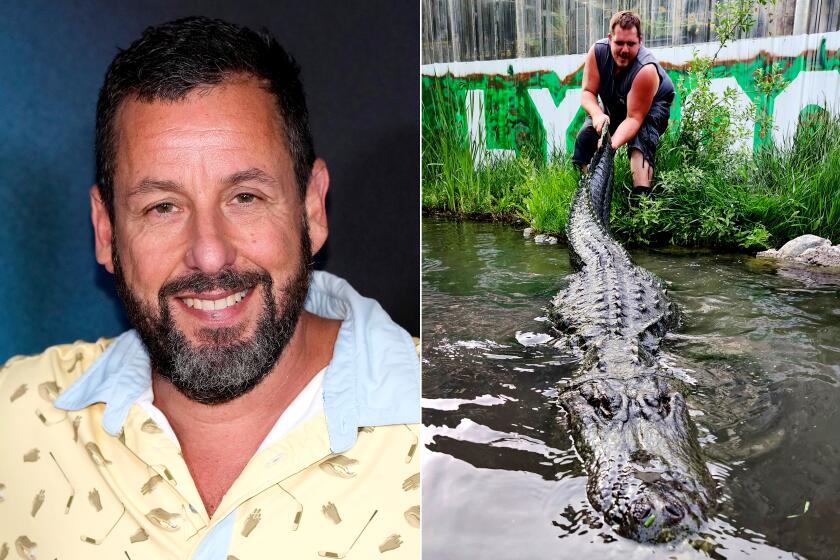L.A. Latino. LGBT.
- Share via
Among Outfest 2013’s diverse slate of films is “Rad Queers: Payasos L.A.” and “Transvisible: The Bamby Salcedo Story.” They are two documentaries that turn the lens on Angelenos who are devoting time and effort to making this town – and the world – a better place for LGBT Latinos.
“Rad Queers,” which screened at Outfest on Saturday and Sunday but is available to view free on Vimeo, is a short film that focuses on a group of community-minded gay and bisexual Latino men who sport clown face paint while hosting and participating in fundraisers. Their goals are to support youth programs, promote Latino presence in the arts and generate awareness about issues that affect the Latino community in L.A. and beyond.
The Payasos smash taboos, redefine philanthropy and “help Latino men come out of their shell,” according to one Payaso in the film. While the organization’s magnetic founder, Leo Iriarte, was growing up in the late ‘70s and early ‘80s, he was obsessed with Mexican TV clown Cepillín. Cepillín’s casual, trampish, almost hip look inspired Iriarte to paint his face and put together his own clown troupe.
Graham Kolbeins is the film’s director. “I just saw all these hot guys doing something cool and I wanted to know more,” he says. Kolbeins first encountered the Payasos in 2011 at one of Silver Lake’s mainstay gay bars, the Eagle. He took a low-key approach to documenting his subjects, attending their events and allowing them to explain their mission while they transformed themselves into mustachioed clowns.
“The Payasos put together an identity for Latino men,” says Kolbeins. “It’s an open community that allows for brotherhood and for people to explore their identities in a queer way.”
Also exploring identity is director Dante Alencastre’s “Transvisible.” The hour-long doc, which screened at Outfest on Sunday evening (information on future screenings at www.transvisiblefilm.com), tells the story of Bamby Salcedo, an HIV-, transgender- and immigrants’ rights activist who is a transplant from Guadalajara, Mexico.
Alencastre, who grew up in Peru, says he knew he wanted to make a film about Salcedo because of her standing in the community and because her story could inspire self-worth and introduce a positive role model to a group that needs one.
“Besides being very family-oriented, many [Latinos] are also very faith-based,” Alencastre says. “If you’re young and coming out as trans, you might wind up rejected and out in the streets.”
Alencastre hopes Salcedo’s life proves to viewers – especially young trans people – that they can overcome anything that’s thrown their way.
“I hope they look at this woman who’s so visible and see the obstacles in her life and say, ‘I can do it too,’” he says.
–Alex Weber, Brand Publishing Writer
More to Read
Only good movies
Get the Indie Focus newsletter, Mark Olsen's weekly guide to the world of cinema.
You may occasionally receive promotional content from the Los Angeles Times.










